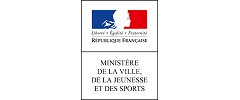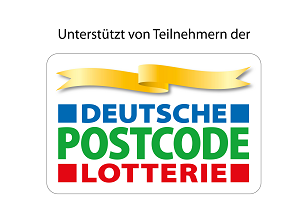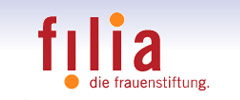WECF actively participated in chemicals debates in international chemical policy process
Strategic Approach to International Chemical Management (SAICM); a 2008 report
04.11.2008 |Nicole van Gemert
Women in Europe for a Common Future participated several meetings of the Strategic Approach to International Chemical Management (SAICM), that provides an overarching strategy to address problems of chemical management and safety. SAICM was adopted at the International Conference on Chemical Management in Dubai 2006.
The objective of the strategic approach is to achieve the sound management of chemicals throughout their lifecycle so that, by 2020, chemicals are used and produced in ways that lead to the minimization of significant adverse effects on human health and the environment.
WECF participated 2008 in several meetings:
- Feb 08: EU-JUSCANNZ-meeting (Europe, Japan, US, Canada; New-Zealand) Countries reported their progress and discussed the conference program of ICCM2. Proposals have been made for the role of procedures;
- Sep 08: CEE-meeting for the
Central and Eastern European Region (CEE) in Bucharest, Rumania, and was set up
to discuss the specific chemicals items of this region;
- Oct 08: Open-ended Legal and Technical Working Group (OELTWG) of the International Conference on Chemicals Management (ICCM) and in informal discussions on preparations for the second meeting of the ICCM (ICCM2) in Rome
WECF stressed the importance of industry contributing in funding SAICM, since they are the producers of (sometimes hazardous) chemicals.Also, WECF noted that there is confusion about the departments responsible for chemicals policy, should it be the Ministry of health, environment, economical affairs or agriculture (pesticides for example)?This confusion leads to the fact that many delegates were not clear about their mandates, which was frustrating and disturbed the decision-making process.
The meeting ended with a day of discussion about the Rotterdam Convention, that promotes and binds the exchange of information on a very broad range of chemicals. The actual meaning of the Convention, getting substances registrated based on technical and scientific research, is strongly influenced by political motives. According to WECF, most of this is due to misunderstanding of the Rotterdam Convention. Many countries think that a substance that is placed on the list will be banned. In reality, placing a substance on the PIC-list (Prior Informed Consent) means that exporting countries are obliged to inform the importing country aboutthe trade in these substances.
In October, WECF participated at the first meeting of the Open-ended Legal and Technical Working Group (OELTWG) of the International Conference on Chemicals Management (ICCM) and in informal discussions on preparations for the second meeting of the ICCM (ICCM2) in Rome. The working group discussed the rules of procedure for the ICCM, using the rules of procedure for the preparatory committee for the Strategic Approach to International Chemicals Management (SAICM) as a guide. Although some progress was made, delegates were unable to reach agreement on the rules of procedure. Negotiations will continue at ICCM2 in May 2009. During the week, delegates also exchanged views on issues to be considered and agreed on the way forward for prioritizing emerging policy issues.After an intensive week of debate, the delegates couldn’t agree on the way of decision-making (whether it should be done by voting, consensus, or both). Also, WECF participated in an intensive debate on the role of stakeholders in SAICM.The NGOs (public interest organizations, science and industry) united and recalled the multi-stakeholder nature of SAICM, as well as the fact that it is a voluntary agreement. However, negotiations were difficult, particularly over whether NGO and IGO representatives could participate as equal partners on the Bureau and in decision making.
Initially some delegations had opposed any form of NGO/IGO participation, because of underlying fears that the ‘wrong’, like for example terrorists, non-governmental participants might get in. In practice, this means that “full stakeholder participation” is now skewed towards governments, thus undermining SAICM’s original intent of having a completely participatory nature. The discussion will continue at ICCM2, in May 2009.
Related News
Human Biomonitoring for Europe
Vienna, 26 September: stakeholder forum
28.09.2018
WECF sends letter to Dutch Secretary of State concerning EU policy on EDCs
In a joint statement WECF and the EDC Free Coalition ask Dutch State Secretary Dijksma to insist on major changes at the Environmental Council meeting to protect our health and environment.
21.06.2016
Commission's EDC criteria proposal: More humans will have to be harmed before action is taken
The European Commission presented today its proposal for criteria to identify endocrine disrupting chemicals (EDCs). WECF and the EDCfree Coalition condemn strongly the decision.
15.06.2016
WECF film "How to protect children from EDCs" now available in Spanish
Pregnant women know it is important to avoid alcohol, nicotine and certain foods. However, what is less well known is that many everyday products contain pollutants that can also be harmful to your baby. WECF's film gives practical advice on how to avoid exposure to EDCs. It now also available in Spanish.
13.06.2016



































